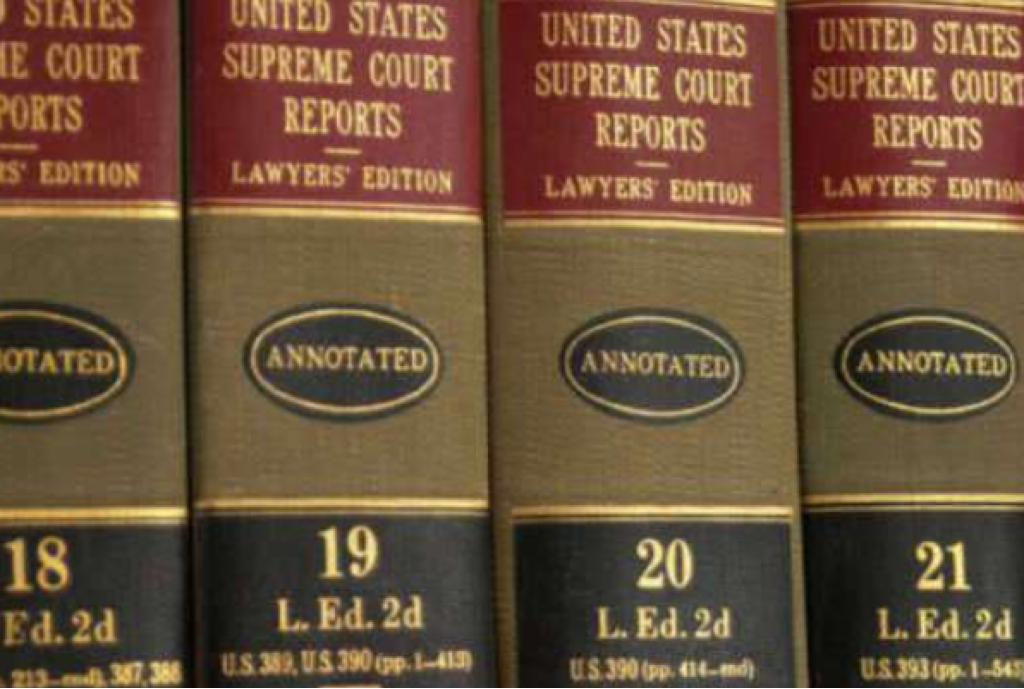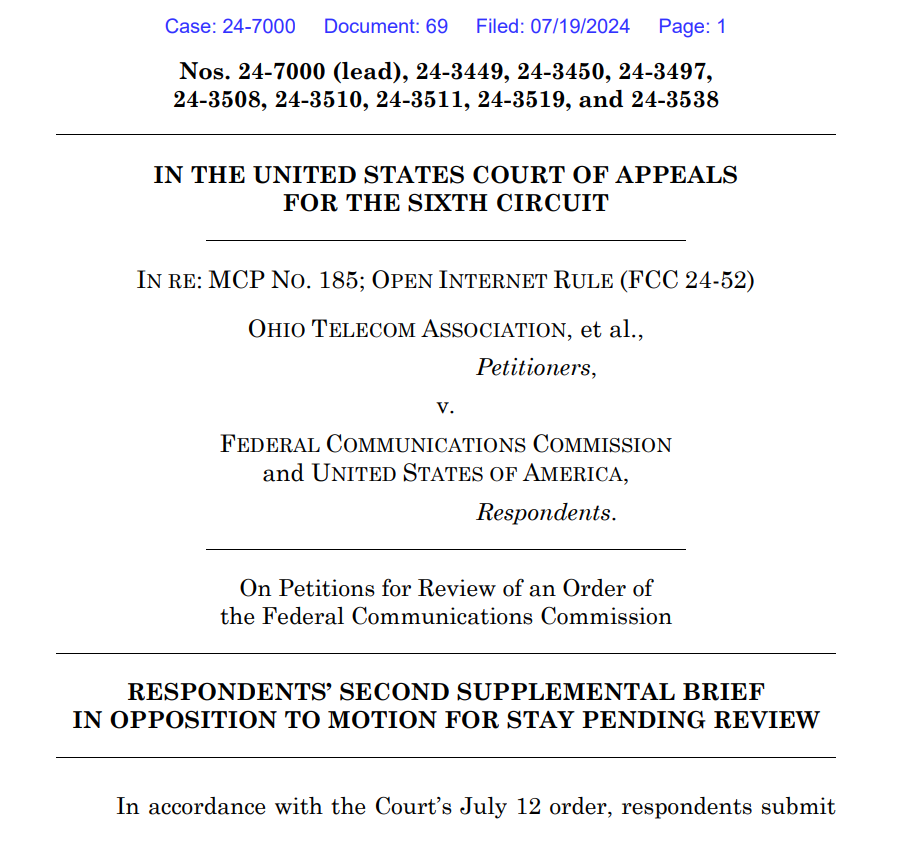FCC: Supreme Court Precedents Protect Net Neutrality Rules
'It is solely the Supreme Court’s prerogative to reconsider or overrule its own precedents,' FCC says.
Ted Hearn

WASHINGTON, July 19, 2024 – Imposing strict conduct rules on Internet Service Providers like Comcast and Verizon was lawful and protected by two major Supreme Court decisions, according to lawyers for the Federal Communications Commission.

Respondents' Opposition to Motion for Stay
In a court brief Friday night, FCC lawyers argued the agency’s Net Neutrality rules adopted in April tracked with two Supreme Court decisions on the scope of agency authority that lower courts were required to enforce.
The FCC lawyers said the court’s 2005 ruling in NCTA v. Brand X Internet Services endorsed the agency’s power to classify broadband ISPs, whether as common carriers under Title II of the Communications Act or lightly regulated providers under Title I. Brand X upheld the FCC’s Title I classification of cable modem service, as it was called at the time.
The FCC filed the brief with the U.S. Court of Appeals for the Sixth Circuit, which has been asked to block the Net Neutrality regulations by national and regional trade associations for ISPs before the rules go into effect on Aug. 5.
"This [Sixth Circuit] court remains bound by Brand X … even if a party contends that 'the doctrinal landscape undergirding' a Supreme Court decision 'has shifted significantly since it was decided,’” FCC lawyers said. "It is solely the Supreme Court’s prerogative to reconsider or overrule its own precedents.”
The FCC is relying on the Brand X precedent, even though that case was about the deregulation of ISPs. The case in the Sixth Circuit is about the re-regulation of ISPs under Title II to protect an open Internet.
"The question at issue here is not whether a Title I approach remains permissible, but instead whether, in adopting a Title II approach, the FCC correctly determined that Title II represents the best reading of the Act,” FCC lawyers said.
Last month, the Supreme Court handed down Loper Bright Enterprises v. Raimondo, a ruling widely seen as a setback for regulatory bodies like the FCC. The case abolished the Chevron Doctrine, a requirement that federal courts broadly defer to the FCC in the interpretation of ambiguous communications laws passed by Congress.
FCC lawyers argued that the freedom given the agency under Brand X was protected in Loper because the Supreme Court said it was not overturning prior cases won by the FCC under the Chevron Doctrine, including Brand X.
The [Net Neutrality rules are] lawful under Loper Bright because it represents the best reading of the Communications Act in accordance with the traditional tools of statutory construction,” FCC lawyers said.
The ISPs have claimed that the Net Neutrality rules - which feature bans on blocking or throttling lawful content - violated the Supreme Court’s Major Questions Doctrine. The MQD bars the FCC from resolving questions of vast economic and political significance without clear authorization from Congress.
But FCC lawyers said Brand X protected the agency from MQD exposure.
“Brand X’s holding that the Communications Act gives the FCC authority to classify and regulate broadband service forecloses [ISPs’] arguments that the major-questions doctrine deprives the agency of that authority,” FCC lawyers said.









Member discussion